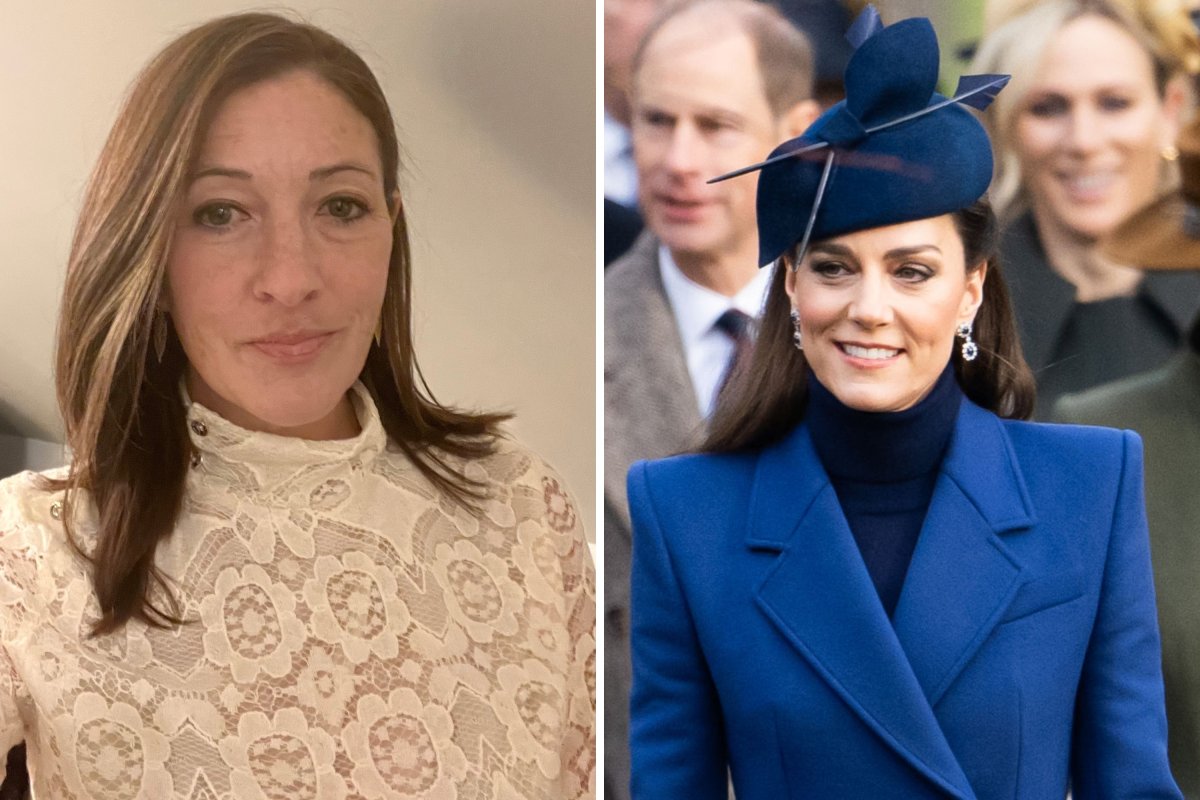Like so many people around the world watching the video of the Princess of Wales, Kate Middleton, reveal her cancer diagnosis, my heart broke for her.
For months, she has been under public pressure and relentless scrutiny for her decision to retreat from public life. Unless you have had cancer, you may not understand how hard it is to decide when or if to share your diagnosis with others.
As someone who had to disclose my own diagnosis before I was ready, I believe no one should be bullied into doing so, especially when there are children involved.
Although I was not pressured with the same intensity or as publicly as Kate Middleton, due to the circumstances at the time I was diagnosed with breast cancer, I was forced to reveal it to my children before I was ready.
Having to do this added considerably more stress to an already stressful situation. It also meant I was telling them before I had a clear picture of what my prognosis was and what my treatment plan would entail.
In April of 2020, just a few weeks into the first Covid lockdown, I found a lump in my breast and frantically texted my doctor for help. If life had been normal, my 17-year-old twins would have been busy with school and activities and wouldn't have noticed that, after weeks of being locked down at home, I was suddenly leaving the house for several hours at a time.
It didn't take long before my daughter and son started asking questions about where I was going and what was wrong. My husband and I decided we had no choice but to tell them the truth.

"Do you have Covid?" my daughter asked when we sat them down for a family meeting. Apparently, she had overheard me on the phone talking about the hospital, and this seemed like the most logical explanation.
"No, I don't have Covid, but I might have cancer." At that time, I didn't even have the results of the biopsy. And as the word 'cancer' left my lips, I broke down.
I hated that I wasn't strong enough to hold it together for them, but I was still in shock myself. As a mother, telling them so soon, and before we even knew if it was cancer, felt exceptionally cruel. All I wanted was to protect them from what was happening, and instead, I was bringing them into it.
They had questions, but I didn't have the answers yet. That night, we sat together, crying, holding each other, and unsure of what the future would hold.
Two days later, the doctor would call to say the lump was indeed cancerous. But what I didn't realize until then is that there are stages to getting a cancer diagnosis.
The true picture takes time to come into focus. If I had had a choice, I would have waited until I had more of the facts and processed each component before I told anyone.
I received the initial results after a biopsy, which showed malignancy, but it wasn't clear what stage or how aggressive the cancer was until further tests were conducted.
Other results, which would determine if I would need chemotherapy or radiation or both, took even longer and couldn't be performed until weeks later, after my surgery. In addition to telling my children, I also wasn't prepared for how sharing the news with a wider range of people would add even more intensity to the situation.
In June of 2020, after my immediate family had had a few weeks to adjust, I had an article published about getting a cancer diagnosis during Covid. Since I was a writer who was going through such an unusual experience, it felt natural to share it. But as soon as the story was out, my phone blew up with a continuous stream of texts, phone calls, and emails wanting updates, sharing similar stories, and wishing me well.
Although all were well-intentioned, it suddenly felt this one story had given me an entirely new identity. Where a few weeks ago, I was a healthy 40-something-year-old woman, now cancer felt like my one defining quality.
Four years later, I am cancer-free and healthy again. I've had other stories published about my diagnosis, but the difference is, I've had time to get used to this new part of myself.
I know now it is just one thing that happened to me and not the thing. From the moment cancer comes into your life, your agency is taken away. Just because you share one part of your cancer story doesn't mean anyone has a right to know the rest of it. Everyone deserves to decide when they are ready to disclose what they want to—if they want to at all—including a princess.
Darcey Gohring is a freelance writer and editor. She is the Head of Zibby Classes and also hosts Zibby's Writing Community, where she organizes weekly online sessions with hundreds of writers from all over the world. Her essays have appeared in Newsweek, HuffPost, Insider, Scary Mommy, among others.
All views expressed are the author's own.
Do you have a unique experience or personal story to share? Email the My Turn team at myturn@newsweek.com.
Uncommon Knowledge
Newsweek is committed to challenging conventional wisdom and finding connections in the search for common ground.
Newsweek is committed to challenging conventional wisdom and finding connections in the search for common ground.
About the writer
Darcey Gohring is a freelance writer and editor. She is the Head of Zibby Classes and also hosts Zibby's Writing ... Read more
To read how Newsweek uses AI as a newsroom tool, Click here.








